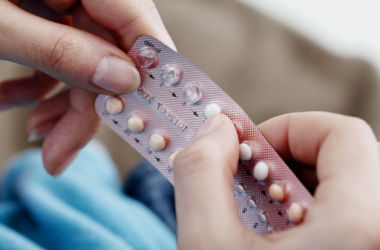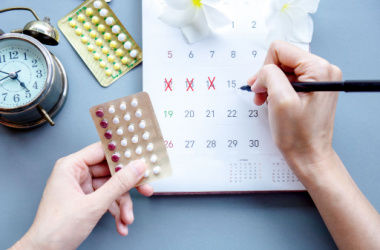Women Care
Contraceptive Pills: Are They Really Effective In Preventing Pregnancy?
By Apollo 24|7, Published on- 30 August 2022, Updated on -18 October 2022
Share this article
0
4 likes
Did you know that hormonal contraceptive was one of the most significant scientific breakthroughs of the 20th century and was introduced in the early 1960s? Oral contraceptive pills (OCP) or birth control pills have a high success rate, making them the most opted way to prevent unintended pregnancy. Birth control pills are effective, safe, and reasonably priced. In this blog, we will answer all your questions about birth control pills.
How do contraceptive pills work?
Contraceptive pills contain hormones that inhibit the fertilisation of the egg. Hormones stop ovulation (eruption of the egg) and thicken the mucus on the cervix, making it difficult for the sperm to reach the egg. The pill also creates a mucus membrane around the egg, preventing it from growing or poking out.
Birth control pills that are marketed as "regular" include synthetic versions of the feminine hormones progesterone and oestrogen. These synthetic hormones imitate pregnancy and prevent the pituitary gland from producing hormones that instruct the ovaries to produce and release mature eggs.

How long do contraceptive pills take to start working?
Start taking birth control pills no later than five days following the first day of your menstruation. For instance, if your menstruation starts on a Monday morning, you can start taking the pill at any time up until early Saturday, and the synthetic hormones would start releasing right away.
POPs commonly referred to as "mini-pills" or progestin-only pills, can be started at any time. The mini pills take two days to start releasing the synthetic hormones.
However, we always advise a backup or a one-month abstention to be completely secure. Additionally, always wear a condom to avoid contracting infections.
Do contraceptive pills offer STD protection?
No. Contraceptive pills do not provide STD protection. The pill is quite effective in preventing pregnancy, but it has little to no effect on your ability to avoid STIs. On the other hand, wearing condoms each time you have sex significantly reduces your risk of contracting or transmitting STDs.
What are extended-cycle pills?
The extended-cycle pill is a mixed medication that lowers the number of menstrual cycles from 13 to only 4. This implies that a person using this medication will only menstruate once every season.

How do mini pills work?
These tablets just have the hormone progestin in them. Since they don't contain oestrogen, they can be administered to people who are nursing, suffer nausea, or have other oestrogen-related adverse reactions.
In order to prevent pregnancy:
- Mini pills thicken the cervical mucus and prevent the sperm from reaching the egg.
- The hormone in these tablets also alters the uterine lining, making it considerably less for a fertilised egg to be implanted.
- Mini pills can occasionally stop an egg from being released.
However, mini pills are around 95% effective when taken appropriately and regularly, which is slightly less effective than conventional birth control pills.
Are there any side effects of contraceptive pills?
Some adverse consequences of taking birth control pills are:
- Nausea
- Achy or enlarged breasts
- Spots of blood, known as spotting, between periods
- Lighter phases
- Mood shifts
- Light headache
If you consume the pill as prescribed, it can successfully prevent pregnancy. However, self-medication should never be the case. Always consult a doctor before starting a birth control pill. If you have more questions,
Consult An Apollo Gynaecologist
Medically reviewed by Dr Sonia Bhatt.
Women Care
Leave Comment
Recommended for you
Women Care
Can Hormone Therapy Help Treat Advanced-Stage Breast Cancer?
While treating cancer at an advanced stage can be difficult, this article shows the efficacy of hormone therapy against stage 4, metastatic breast cancer.
Women Care
Do All Fibroids Need Surgery?
The presence of fibroids, which are benign growths in the uterus, is often undetected in many women. But what are the symptoms that women have that may necessitate their undergoing surgery? Dive in here to find out when fibroids need surgery.
Women Care
Not Just Menopause, These Factors Can Also Cause Vaginal Dryness
While menopause is the most common cause of vaginal dryness, it is not the only one. This article explores the various causes of vaginal dryness, including menopause, medications, medical conditions, lifestyle, and psychological factors.
Subscribe
Sign up for our free Health Library Daily Newsletter
Get doctor-approved health tips, news, and more.




